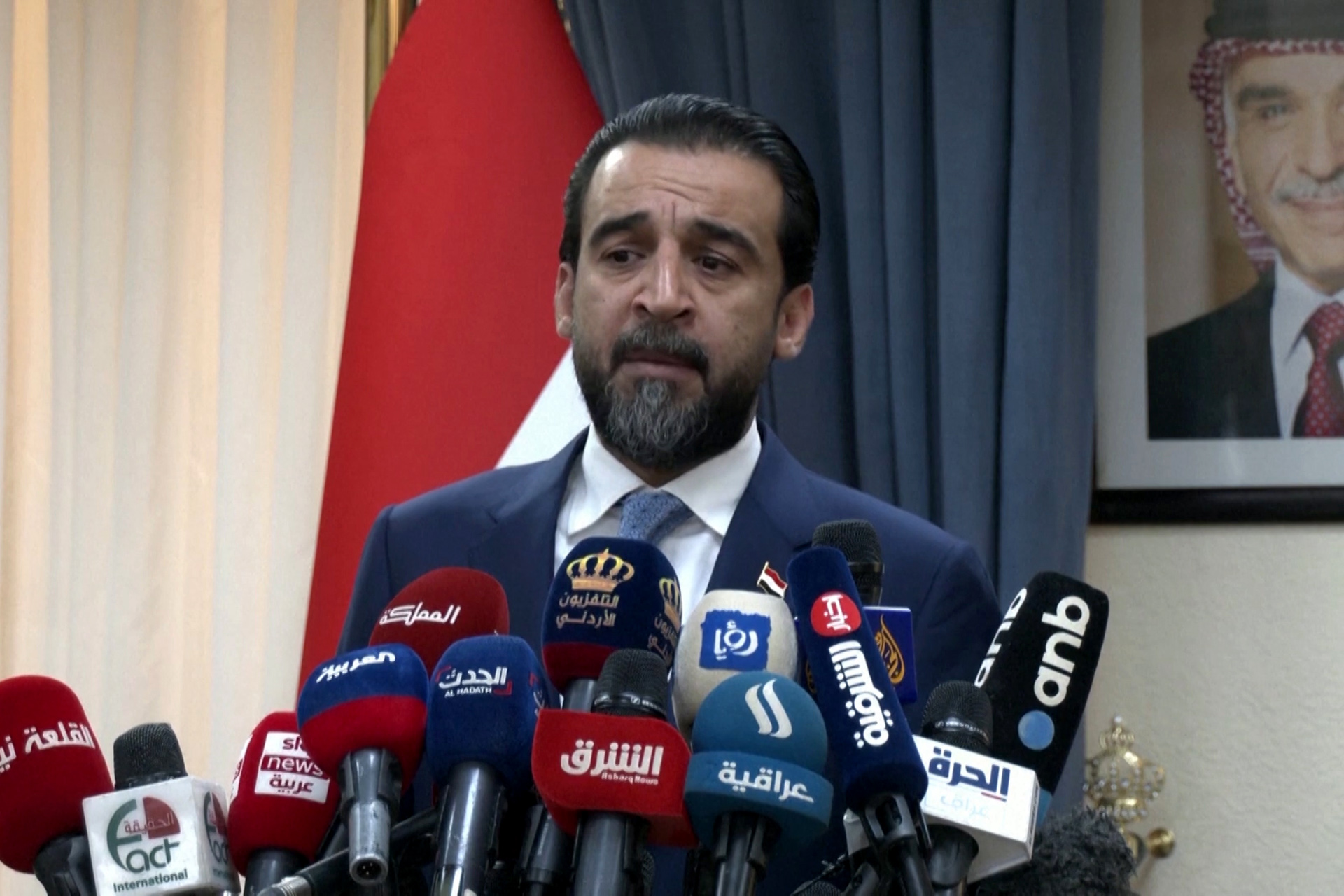Today, Monday, the Speaker of the Iraqi Parliament, Muhammad al-Halbousi, submitted his resignation from his position, and parliament set the day after tomorrow, Wednesday, to vote on it, in light of the continuing political crisis in Iraq.
According to a Parliament statement carried by the official agency, the House of Representatives will hold a session on Wednesday, the agenda of which includes voting for Al-Halbousi’s resignation from his position.
In this context, the Speaker of the Iraqi Parliament said that he did not discuss with anyone the decision of his resignation from the presidency, and considered that going to early elections is a double-edged sword, and that the effort should focus on achieving reconciliation, he said.
The session to be held by the Iraqi parliament on Wednesday is the first since the bloody violence that shook the country on August 29, and the sit-in that Muqtada al-Sadr's supporters held for a short period in the vicinity of the council two months ago, according to a statement issued today, Monday.
Iraq has witnessed a comprehensive political impasse since the legislative elections in October 2021, with the inability of the major political currents to agree on the name of the next prime minister and the method of his appointment.
Parliament was last held on July 23, and a few days after that, supporters of Muqtada al-Sadr stormed the House of Representatives, before they held a sit-in for a month in its gardens. dozens.
"routine procedure"
According to political observers, this vote is no more than a formality, and it is a re-establishment of confidence for al-Halbousi against the backdrop of behind-the-scenes political bargains.
Prominent politician Mishaan al-Jubouri said in a tweet that this resignation "aims at obtaining a renewal of confidence" and assuring support for him "when the resignation is rejected."
In turn, political analyst Sajjad Jiyad told AFP that "Al-Halbousi is not planning to resign, but by allowing a possible vote of confidence his partners are expected to give him strong support that puts an end to every attempt to dismiss him in the future."
This is a way to "consolidate his position as a political leader for Sunnis and put pressure on Shiite and Kurdish parties to speed up the formation of the government," added Jiyad, a researcher at the Century International think tank.
The dispute is escalating today in Iraq between two camps, the first led by Muqtada al-Sadr, who calls for an immediate dissolution of the House of Representatives, consisting of 329 deputies, and the holding of early legislative elections after withdrawing 73 deputies. The other is represented by the coordination framework that seeks to form a government before any elections are held.

